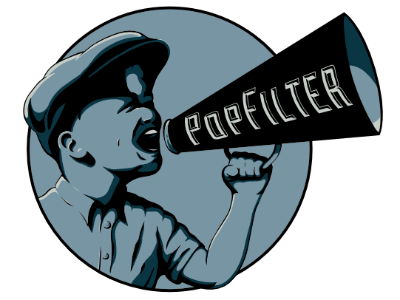WINTER TV EXTRAVAGANZA
BRODY STEVENS: ENJOY IT
*** (out of ****)
Comic nerds want to like the comedians their favorite comedians like. Comedians are typically not shy about the stand-ups they like, and they are usually pretty far left of center. No hip, alternative stand-up comedian talks about Jeff Foxworthy, or tells us we really need to hear Jeff Dunham’s new album. They primarily discuss – and promote – comedians who wouldn’t have a shot to get on Jay Leno. One of the comedians who has been mentioned a lot over the last five years or so is Brody Stevens. Brody Stevens is not your typical comedian. For one, I don’t find him funny. He’s not anti-funny, like Neil Hamburger. He just doesn’t really tell a lot of jokes. But if the people I like like him, I want to know why. I’ve seen him live. I’ve seem him in a couple of movies, bit parts that he will constantly remind you of throughout his act. You find yourself spending more time trying to figure out what the premise of the bit that is Brody Stevens is more than you spend laughing at jokes. So why do comedians like him? Is he on a different level that I can’t understand? Are stand-ups so tired of stand-up that they thirst for anything different than airplane food jokes? Or is he just a nice guy off stage, and so his comedian friends root for him. The online-turned-Comedy Central show Brody Stevens: Enjoy It seems to be partly an attempt to answer these questions, but also a way to turn the mystery that is Brody Stevens into the tone of a show.
When the show starts out, Brody isn’t doing so hot. He’s too old to be a stand-up comedian in his current position. The show makes it seem like his best friend is Zach Galifianakis, whose career is doing a tad better that Brody’s. He lives in a shitty apartment, makes just enough money to get by, and isn’t getting the roles – or even the headlining gigs – he thinks he should. He is a shameless self-promoter, but not shameless in a “refuses to feel shame†kind of way. It’s more in an innocent, almost likeable way. During the course of the first couple of episodes, Brody has a meltdown, which results in an arrest and a monthlong stay in a psychiatric hospital. This is the basis of the drama for the beginning of the series, which had its original run on HBOGo, and is now being aired on Comedy Central, which will also air six never-before-seen episodes.
If you’re the kind of person who wants to figure Brody’s act out, instead of take it for what it is, you might get hung up on trying to decide what kind of show this is, or what’s fake or not. I think the goal, maybe like the goal of seeing Brody live, is to get yourself to the point of not being worried about that as soon as possible. Both he and his show have this polarizing sort of personality, where it’s impossible to immediately take it at face value. If you put all of that aside though, and stop worrying if you’re getting fucked with or not (you are, but you’ll never know how much), Enjoy It becomes an interesting drama, a genre we don’t get enough of when it comes to comedians and their stories.
One of Brody’s goals throughout the show is to reconnect with his estranged sister for his mother’s birthday. Brody says she’s at fault. She was a bully when they were kids and she never grew out of it. The sister makes it seem like Brody was just too intolerable to continue a relationship with, and even though Brody is our protagonist, you can see where she’s coming from. Instead of forcing the documentary to shine more light on Brody, like a reality show choosing its heroes and villains, we get something I’ve never seen in a documentary before. After the siblings go out to dinner and decide to reconcile, the camera stays on Brody’s sister as Brody walks away. A different camera follows Brody, and we get to watch, through the magic of split screen, the two people react to the night at the same time. It’s an important moment for a couple reasons. One, this kind of thing would usually be done by cutting back and forth. This would seem natural to us, so we wouldn’t consider that we’re not being shown the entire conversation, but instead snippets of a conversation, necessarily molded by a director or editor. Two, Brody comes off as the optimistic chump here, thinking the night went great, as his sister shits all over her brother and the dinner. And it’s Brody’s show! His name is in the title. This lack of narcissism, or self-flagellating stupidity, may be the sole reason Brody’s comedian friends are friends with him. It’s this kind of thing that eventually talked me into not caring what’s real and what’s fake. Brody Stevens exists in real life, and maybe comedy – which again, this is not – just isn’t his bag. It turns out you can still be an interesting person without being funny.
– Ryan Haley

